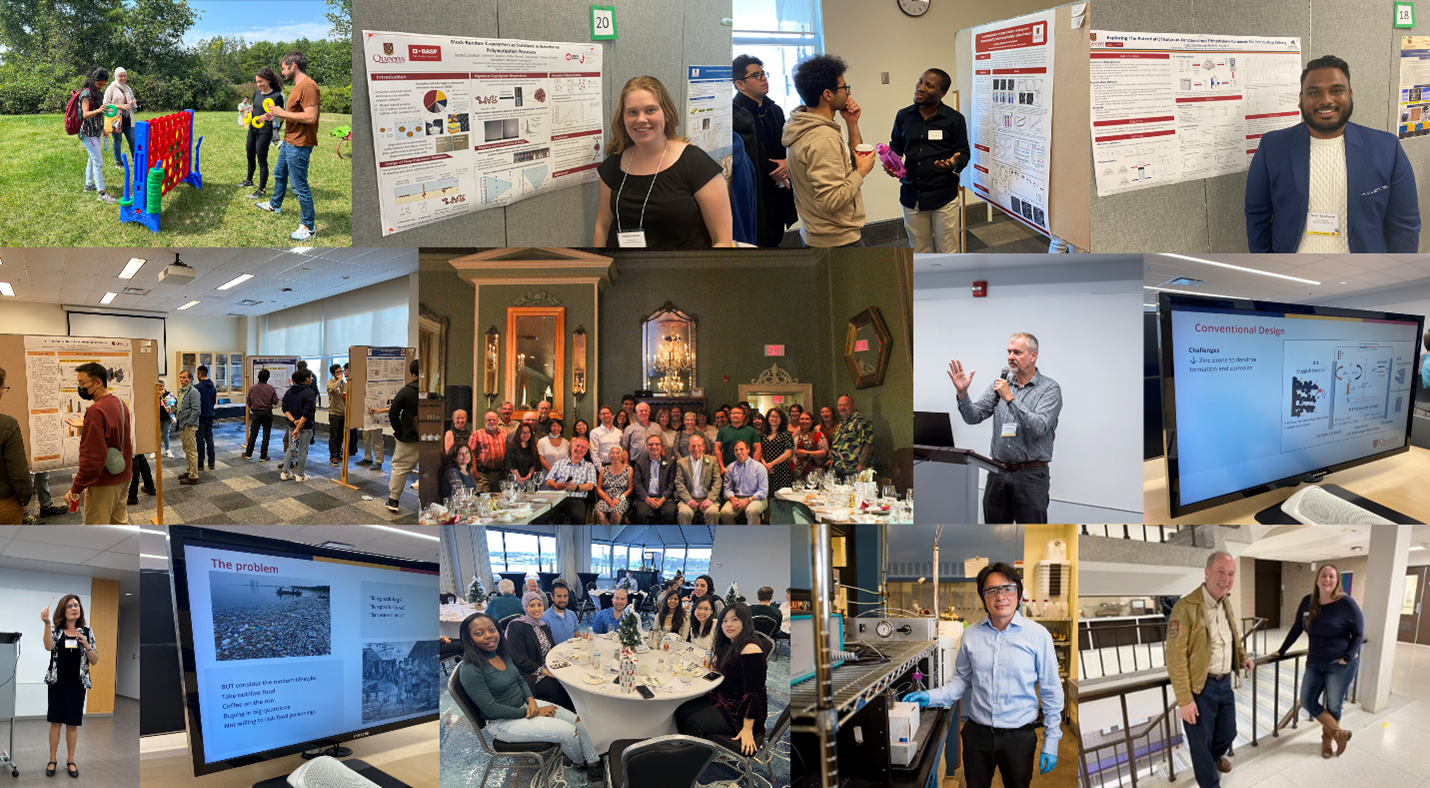2022 has been a year of returning to the office, labs and in-person events for our faculty, staff, and students after nearly two years of persistent shutdowns, virtual learning, and online events. As we start 2023 off, let us look at some of Chemical Engineering’s highlights over the last year.

This year we saw new positions, welcomed new faces and wished others well in their retirements. Brian Amsden was re-appointed to a second term as Department Head, Aris Docoslis was appointed the new Associate Dean, Graduate Studies for FEAS, and Carlos Escobedo stepped up as FEAS Interim Special Advisor Research. Additionally, Robin Hutchinson will become Acting Head for 2023. We welcomed a new Faculty member, Kevin De France who is building a research program that will explore the design of sustainable bio-based materials and their application in fields spanning the biomedical, coatings & packaging, and environmental sectors. In summer 2023, we will welcome Rachel Baker to commence the inaugural Robins Family Professorship of Engineering Chemistry. Additionally, there were several staff changes. Ying Zhang moved to the position of Lecturer and Laboratory Coordinator, Mahmoud Khademi moved to the position of Senior Research Engineer and Sophie Felleiter joined the department in the newly created role of Research Development Coordinator. Finally, this summer, the department celebrated the retirement of Professor Juliana Ramsay, Professor Thomas Harris, Professor Kimberly Woodhouse, and Lecturer and Laboratory Coordinator David Poirier.
Our faculty, staff, and students also received numerous awards in recognition of their research excellence, scholarly aptitude, and dedication to their work. Highlights include:
Student Awards
2022 was also an excellent year for research, from developing a graphene kidney to treat contaminated waters (Louise Meunier and Ehssan Koupaie) to creating a circular economy for recyclables using plastic-hungry microbes (Laurence Yang and Jim McLellan) to developing next-gen control technology for navigation of High-Altitude Platform Systems (Martin Guay). Our faculty were awarded over $1.5 million in research funding, published over one hundred articles in peer reviewed journals, and attended national and international conferences. This includes two faculty who renewed NSERC Discoveries (Dominik Barz and Jeffrey Giacomin) and four faculty who received funding from NSERC RTI (Brian Amsden, Cao Thang Ding, Lindsay Fitzpatrick and Laura Wells). Cao Thang Dinh and Laurence Yang received funding from the competitive NFRF-Exploration program for developing electro-bio hybrid systems for converting CO2 to bioplastic. Kevin De France brought in funding from CFI JELF to support purchasing equipment and instruments to begin establishing his research program. Marianna Kontopoulou was awarded funding from the Queen’s Technology Development Pilot Program to enhance commercialization and licensing opportunities. Finally, the department was excited to offer, for the first time, an internal funding opportunity to support faculty research. Dominik Barz and Robin Hutchinson were the first winners, receiving funding to support student stipends and purchasing new instruments.
We were thrilled to resume many activities in-person that had either paused or went virtual during the pandemic. The Departmental Seminar Series resumed, including the first David W. Bacon Distinguished seminar (coordinated by Nicolas Hudon) in more than two years, where we were joined by Harvard Dean of Engineering Francis J. Doyle III. Graduate Students attended and presented at local events, including our in-house research poster day, Queen’s Engineering Research Networking Day, and the Canadian Chemical Engineering Conference, where the department supported students, including eight undergraduates, to attend the conference in Vancouver. For the first time in two years, the whole department was also able to get together for a summer social and holiday party.
We look forward to what 2023 brings!